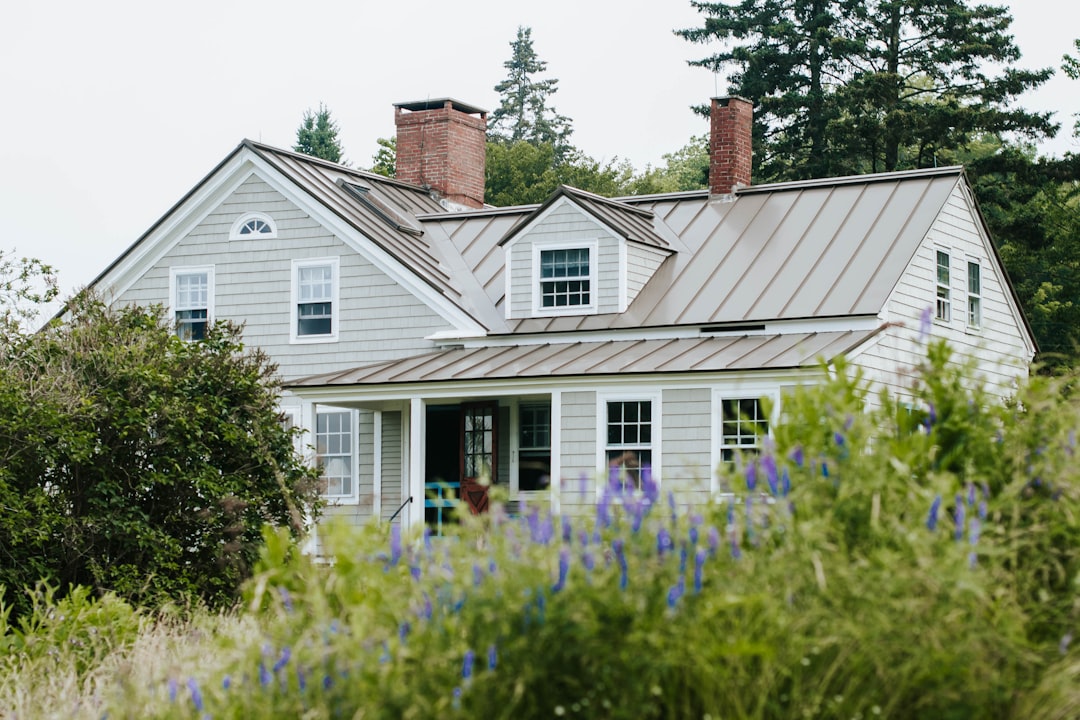Financial News
How Often Should You Inspect Your Roof?
 Photo from Unsplash
Photo from Unsplash
Originally Posted On: https://ragsdaleroofing.com/2025/01/16/how-often-should-you-inspect-your-roof/
How Often Should You Inspect Your Roof?
Overview
Humidity and severe weather conditions can significantly impact your roof’s performance. In this blog post, Ragsdale Roofing And Innovations LLC’s roofing specialists explain how often you should inspect your roofing system, what to remain vigilant for, what to do during an emergency, and what a roof inspection typically covers. We also added some of the best maintenance practices for a range of roofing material types at the very end to help you stay informed, stay proactive, and keep your roof in top condition.
Highlights
- Why you need a roof inspection
- When to inspect your roof
- How climate affects your roof
- How to prepare for your roof inspection
- What roof inspections cover
- Signs your roof needs repairs
- What to do during a roofing emergency
- Roof maintenance tips
Introduction
Your roof is your home’s first line of defense against challenging weather conditions out here in the lowcountry. From the scorching sun to sudden downpours, it’s exposed to elements that can wear it down over time.
Did you know skipping regular roof inspections could cost you thousands in unexpected repairs? Preventative maintenance is the key to extending your roof’s lifespan and keeping your property safe, especially in our region’s unpredictable climate. Regular inspections will help maintain your roof’s appearance and protect your property’s structural integrity. Ragsdale Roofing And Innovations LLC will explore the ideal frequency of inspection and other issues to watch out for.
Why Are Regular Home Roof Inspections Important?
Living in a coastal area means you can embrace the beauty of nature—but it also means dealing with its challenges. High humidity, heavy rains, and tropical storms can affect your roof, leaving it more vulnerable to leaks, structural damage, and mold growth. Add to that intense summer heat and constant UV exposure, and you’ve got a recipe for cracked, warped, or loosened roofing materials.
Without taking a closer look, you might miss signs of damage that you wish you’d known about sooner.
When Should You Inspect Your Rooftop?
Scheduling regular roof inspections—ideally twice a year and after major storms—helps you address minor issues before they escalate into costly repairs. These inspections also allow your roofers to uncover hidden problems, like damaged flashing, clogged gutters, or compromised seals, which can lead to serious water damage if left untreated.
Taking a proactive approach to roof maintenance protects your home’s structure, keeps it energy-efficient, and enhances its curb appeal. With Georgia’s unpredictable weather, regular inspections aren’t just maintenance—they’re a smart investment in your home’s safety, longevity, and value.
How Does Climate Impact Your Roof?
The unique combination of weather elements we get here puts roofing systems under constant stress.
Let’s take a closer look at how the climate affects your roof and what you can do to protect it:
- Humidity and moisture: High humidity can contribute to mold and mildew growth and weaken your roof’s structure.
- Tropical storms: Heavy rains and high winds during storm season can cause significant damage, from shingle loss to water leaks.
- Intense heat and UV rays: Prolonged sun exposure can dry out and crack roofing materials, reducing their lifespan.
- Salt air: For homes near the coast, salt air can accelerate the corrosion of metal components like flashing and fasteners.
Understanding these impacts helps you be proactive with roof maintenance, ensuring long-term protection against the challenging climate.
How Do You Prepare for a Visit From a Roof Inspector?
The best way to prepare for an appointment with your roof inspector is to clear access to areas your roofer will need for a complete evaluation of your roofing system. If it’s safe to do so, you can also remove debris like fallen branches and leaves. Inside your home, you can make sure your attic is accessible so they can get a clearer view of any signs of mold, moisture damage, or poor ventilation.
Having your insurance information and previous roof inspection reports on hand is also a good idea since they can sometimes provide helpful context.
Doing these things will help your roof inspector complete a detailed evaluation so they can offer recommendations that keep your roof in top condition.
What Do Roof Inspections Typically Cover?
During your roof inspection, a licensed technician will examine the condition of your roof’s surface—whether it’s the shingles, tiles, or another material—looking for signs of wear and tear, like cracks, curling, or missing pieces. They’ll also inspect important areas like flashing around chimneys, skylights, and vents to make sure everything’s sealed and watertight.
Additional roof inspection checklist items often include:
- Roof edges and eaves
- Roof penetrations like vent pipes, antennas, etc.
- Ridge caps and valleys
- Roof decking
- Roof insulation
Gutters and downspouts get a close look, too, to make sure they’re not clogged and are working properly to direct water away from your home. Your technician will also check your attic for signs of leaks, moisture, mold, or ventilation issues that could signal trouble.
What Are Some Signs Your Roof Needs Immediate Attention?
Some strong indicators will tell you when it’s time to call a roofing contractor for inspection, repair, and replacement services.
Keep an eye out for:
- Leaks and water stains
- Missing or damaged roofing materials
- Sagging roofing sections
- Mold, mildew, or algae growth on your rooftop
- Flashing damage
- Roof ventilation or insulation issues
When you spot any of the above, it pays to act quickly to avoid secondary damages.
Why Is Roof Ventilation Required?
Roof vents help regulate attic temperatures, preventing excessive heat buildup during the sweltering summer months. They also allow moisture to escape, reducing the risk of mold, mildew, and rot, which can compromise your home’s structural components.
Without correctly installed vents, your roof can’t maintain a balanced airflow, which may invite condensation to form and lead to damaged insulation or wooden components. Your inspector will take a look to make sure your roof’s ventilation system meets local building code and safety requirements and is working as expected.
What Should You Do During a Roofing Emergency?
Roofing emergencies can happen suddenly, whether caused by a severe storm, a fallen tree, or unexpected structural failure. When your roofing emergency involves structural damage or significant leaks, prioritize your safety and evacuate the affected area if necessary. You should also avoid entering spaces where your roof appears unstable.
Here’s what else you can do when you’re facing a roofing emergency:
- Prevent further damage: Use tarps or plastic sheeting to cover leaks or exposed areas temporarily. This helps prevent water from infiltrating your home until help arrives.
- Document the damage: Take photos or videos of the affected areas. This documentation can be valuable for insurance claims and when discussing repairs with your roofing contractor.
- Contact an emergency roofer: Contact an experienced roofing company to assess the damage and provide emergency repair services.
- Notify your insurance provider: File a claim with your homeowner’s insurance company and provide the necessary documentation of the damage.
- Avoid DIY repairs: While attempting fixes on your own may be tempting, roofing work is dangerous and often requires specialized tools and expertise. Leave it to roofing experts to ensure repair work meets building codes.
Roofing emergencies can be stressful. Follow the above steps to protect your home and set the stage for efficient repairs.
Are 24-Hour Emergency Roofing Services Available?
Yes. Many roofing contractors offer 24-hour emergency roofing services after hours, in the evening, on weekends, and during holidays. This is especially beneficial when you want to access inspection and repair options as fast as possible.
While you may pay a little extra for expedited service, it’ll be worth it in the long run. Whether you need a temporary fix to stabilize the situation or a comprehensive repair plan, 24-hour emergency roofing services provide the immediate attention your roof needs, no matter when disaster strikes.
The Best Roof Maintenance Practices
Proper roof maintenance safeguards the longevity and performance of any roofing system, whether it’s modified bitumen, green roofs, shingles, tiles, or slate.
Here’s an overview of the different maintenance requirements each roof type has.
Modified Bitumen Roof Care
Modified bitumen roofs benefit from regular inspections to identify and address issues like cracks, blisters, or loose seams. Removing debris and ensuring flashing and seals are intact helps maintain waterproofing integrity, preventing leaks and costly repairs.
Green Roof Maintenance
Green roofs require specialized care, including monitoring vegetation health, verifying proper drainage, and checking for leaks in the underlying waterproof membrane. Routine weeding, fertilizing, and irrigation keep the plants thriving while preserving the structural integrity of your roof.
Shingle Roof Care
Shingle roofs need periodic checks for curling, missing, or damaged shingles. Cleaning off moss and algae buildup also prevents leaks and helps maintain your roof’s visual appeal.
Tile Roof Maintenance
Tile roofs are known for their durability, but they should be inspected for cracked or broken tiles, which can lead to water infiltration. Removing debris from between tiles and cleaning out your gutters helps prevent additional damage.
Slate Roof Care
Slate roofs require attention to loose or chipped tiles. Due to their weight, regular checks of the supporting structure are recommended because this helps you keep a close eye on your rooftop’s safety and stability.
Across all roofing types, keeping your gutters clean, trimming overhanging branches, and scheduling professional inspections twice a year are the best universal practices.
Book Biannual Roof Inspections To Catch Issues as Early as Possible
Regular roof inspections are your ticket to a safe, long-lasting residential roofing system. Schedule at least two annual inspections—in spring and fall—and after major storms so you always have a clear picture of your roof’s health.
Ragsdale Roofing And Innovations LLC’s roofing specialists are here to help. Use our inspections to your advantage and maintain your rooftop’s excellent condition. Contact us today to book an appointment.
More News
View More




Recent Quotes
View MoreQuotes delayed at least 20 minutes.
By accessing this page, you agree to the Privacy Policy and Terms Of Service.



